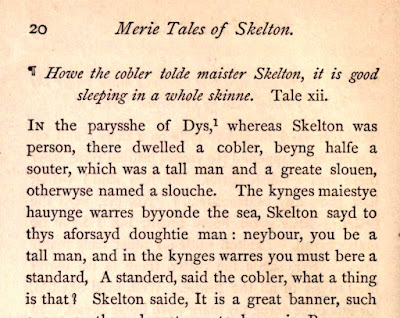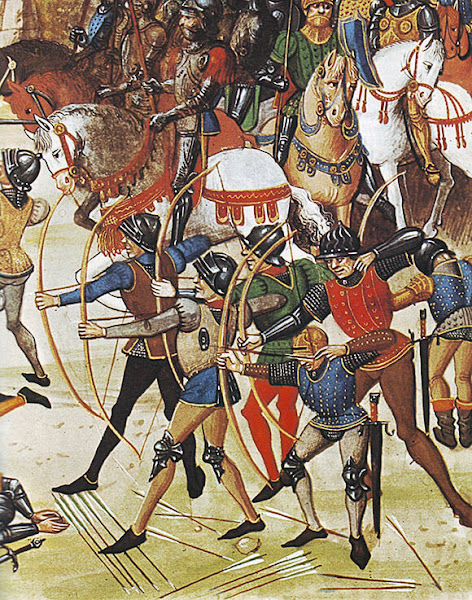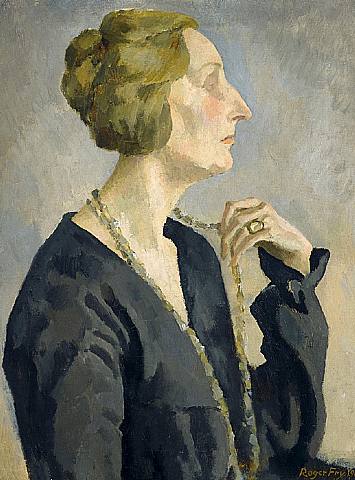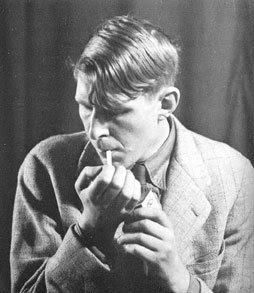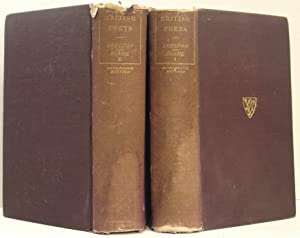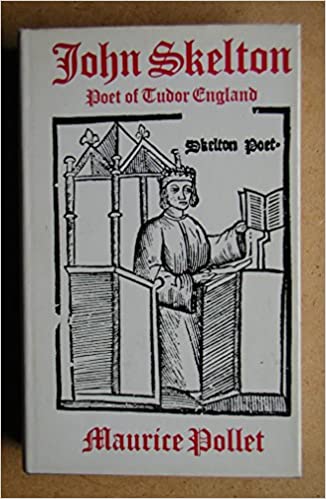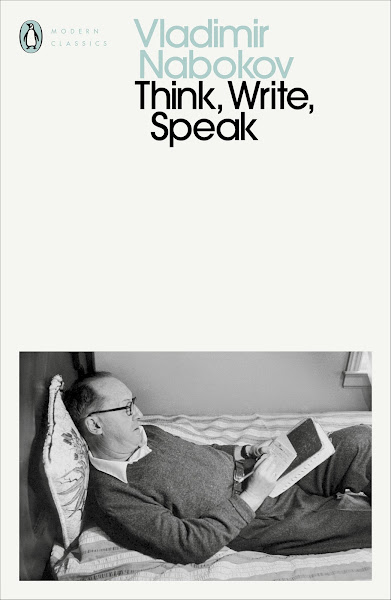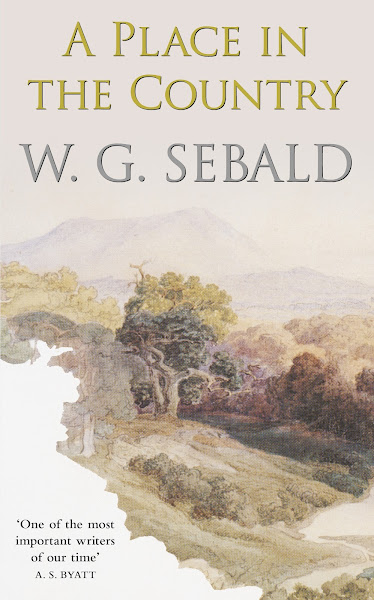 Unity Books
[photograph: Bronwyn Lloyd (31/1/2022)]
Unity Books
[photograph: Bronwyn Lloyd (31/1/2022)]
My colleagues at Massey University were kind enough to have a bit of a whip-round when I
left the building (or rather the zoom-room) a couple of weeks ago now. Friday, 14th January was my official last day, if you're curious.
I have to say that I was impressed by their intuition that what would suit me best is a book-token, and their choice of locations -
Unity Books in High Street - was also right on target. Where else can you go in Auckland to find "brainy stuff"? (Believe it or not, that's the label above one of the bookcases in the shop).
I won't be rude enough to reveal how much the book-token was for, but suffice it to say that it covered the four brand-new books above.
They are (in alphabetical order):
Nasrullah Munshi. Kalila and Dimna. Trans. Wheeler M. Thackston. Indianapolis: Hackett Publishing Company, Inc., 2019.
Vladimir Nabokov. Think, Write, Speak: Uncollected Essays, Reviews, Interviews, and Letters to the Editor. Ed. Brian Boyd & Anastasia Tolstoy. 2019. Penguin Modern Classics. London: Penguin Random House UK, 2020.
Pablo Neruda. The Complete Memoirs: Expanded Edition. 2017. Trans. Hardie St. Martin & Adrian Nathan West. New York: Farrar, Straus and Giroux, 2021.
Carol Angier. Speak, Silence: In Search of W. G. Sebald. London: Bloomsbury Circus, 2021.
I guess that the nice thing about them was that - either by coincidence, or through the serendipities of personal psychology - each one of them encapsulates a strong area of interest for me:
The first, for instance, a new translation of a classic set of Arabic fables, adapted and transmuted from their Sanskrit originals, falls into the class of books related to the
Arabian Nights, a work which fascinates me so much that not only do I maintain
a website devoted to the subject, but I've also devised - and taught - an entire
fiction writing course centred on the collection.
Bidpai, the Indian sage who tells the stories - hence their alternative title
The Fables of Bidpai (or 'Pilpay' in French) - focussed them around two ambitious jackals, Kalila and Dimna, employed as servants by the King (a Lion). They consist of a series of intertwined beast fables designed to illustrate the pitfalls in the way of just and effective rule.
Their immediate predecessor was the Sanskrit collection
The Panchatantra, also available in a variety of recensions and forms. Behind that lie the Buddhist
Jātaka Tales, the
Kathāsaritsāgara [Ocean of Streams of Story], and
The Hitopadesha. In its turn,
Kalila and Dimna would go on to influence the numerous beast fables included in the
Thousand and One Nights itself.
The Panchatantra [Pañcatantra] (c.3rd century BCE)
- Ryder, Arthur W., trans. The Panchatantra. 1925. Chicago: Phoenix Books, 1964.
- Edgerton, Franklin, trans. The Panchatantra. London: Allen & Unwin, 1965.
- Visnu Sarma. The Pancatantra. Trans. Chandra Rajan. 1993. London: Penguin, 1995.
- Olivelle, Patrick, trans. The Pañcatantra: The Book of India’s Folk Wisdom. The World’s Classics. Oxford: Oxford University Press, 1997.
The Jātaka Tales (c.5th century)
- Rhys Davids, T. W. trans. Buddhist Birth-Stories (Jātaka Tales): The Commentarial Introduction Entitled Nidāna-Kathā, The Story of the Lineage. 1880. Broadway Translations. London & New York: Routledge & Dutton, 1925.
- Cowell, E. B., ed. The Jātaka, or Stories of the Buddha’s Former Births. Trans. R. Chambers, W. H. D. Rouse, H. T. Francis & R. A. Neil, W. H. D. Rouse, H. T. Francis, E. B. Cowell & W. H. D. Rouse. 6 vols in 3. 1895-1907. Delhi: Motilal Banarsidass Publishers, 1990.
Kalīla wa-Dimna (c.8th century)
- Benalmocaffa, Abdalá. Calila y Dimna. Introducción, traducción y notas de Marcelino Villegas. Libro de Bolsillo: Clásicos 1512. Madrid: Alianza Editorial, 1991.
- Kalila and Dimna: Selected Fables of Bidpai. Retold by Ramsay Wood. Introduction by Doris Lessing. 1980. London: Granada, 1982.
- Munshi, Nasrullah. Kalila and Dimna. Trans. Wheeler M. Thackston. Indianapolis: Hackett Publishing Company, Inc., 2019.
Somadeva (c.11th century)
- Penzer, N. M., ed. The Ocean of Story: Being C. H. Tawney’s Translation of Somadeva’s Kathā Sarit Sāgara (or Ocean of Streams of Story). 1880-87. 10 vols. London: Privately Printed for Subscribers Only by Chas. J. Sawyer Ltd., Grafton House, W.1., 1924-1928.
- Penzer, N. M., ed. The Ocean of Story: Being C. H. Tawney’s Translation of Somadeva’s Kathā Sarit Sāgara (or Ocean of Streams of Story). 1880-87. 10 vols. 1924-28. Delhi: Motilal Banarsidass, 1968.
- Somadeva. Tales from the Kathāsaritsāgara. Trans. Arshia Sattar. Foreword by Wendy Doniger. 1994. Penguin Classics. Harmondsworth: Penguin, 1996.
- Somadeva. Océan des rivières de contes. Ed. Nalini Balbir, with Mildrède Besnard, Lucien Billoux, Sylvain Brocquet, Colette Caillat, Christine Chojnacki, Jean Fezas & Jean-Pierre Osier. Traduction des ‘Contes du Vampire’ par Louis & Marie-Simone Renou, 1963. Bibliothèque de la Pléiade, 438. Paris: Gallimard, 1997.
Narayana (c.12th century)
- Chandiramani, G. L., trans. The Hitopadesha: An Ancient Fabled Classic. 1995. Mumbai: Jaico Publishing House, 1999.
Shortly before I went to High School in the 1970s, the revisionist teachers at Rangitoto College decided to replace the more traditional Latin and French with Russian and Indonesian - more practical choices, or so they thought, for the contemporary world.
I never studied Indonesian, but I did learn Russian - along with French, which had fortunately survived their cull. I wouldn't say that I learnt it
well, but I can follow it a bit, and I can certainly manage Cyrillic letters, which are actually the easiest part of the whole business. The complexity of Russian grammar was certainly challenging, but probably no more so than Latin would have been.
The abiding result of all that is a fascination with Russian literature and culture, which has manifested itself in endless porings over such 'Silver Age' writers as Mandel'stam and Pasternak, as well as the more obvious Chekhov, Dostoyevsky, Gogol, and Tolstoy. Nabokov has never been one of my main heroes, but his brilliance as a bilingual commentator as well as a writer makes him an inevitable subject of interest for me.
Brian Boyd's numerous books on the subject have (I suspect) all made their way into my collection by now. His two-volume biography is, of course, paramount, and - while it did come as a bit of a surprise to discover just how new material remained to be collected in the book above - I certainly welcome this new addition.
 Giuseppe Pino: Vladimir Nabokov (1960s)
Vladimir Vladimirovich Nabokov
Giuseppe Pino: Vladimir Nabokov (1960s)
Vladimir Vladimirovich Nabokov
(1899-1977)
Collections:
- The Portable Nabokov. 1968. Ed. Page Stegner. Viking Compass Edition. New York: The Viking Press, Inc., 1971.
- Novels and Memoirs 1941-1951: The Real Life of Sebastian Knight / Bend Sinister / Speak, Memory: An Autobiography Revisited. 1941, 1947, 1951. Ed. Brian Boyd. The Library of America, 87. New York: Literary Classics of the United States, Inc., 1996.
- Novels 1955-1962: Lolita / Pnin / Pale Fire / Lolita: A Screenplay. 1955, 1957, 1962, 1974. Ed. Brian Boyd. The Library of America, 88. New York: Literary Classics of the United States, Inc., 1996.
- Novels 1969-1974: Ada, or Ardor: a Family Chronicle / Transparent Things / Look at the Harlequins!. 1969, 1972, 1974. Ed. Brian Boyd. The Library of America, 89. New York: Literary Classics of the United States, Inc., 1996.
Novels:
- Mary: A Novel. [‘Машенька’, 1926]. Trans. Michael Glenny in collaboration with the Author. 1970. A Fawcett Crest Book. Greenwich, Conn.: Fawcett Publications, Inc., 1971.
- King, Queen, Knave. [‘Король, дама, валет’, 1928]. Trans. Dmitri Nabokov in collaboration with the Author. 1968. London: Panther Books, 1970.
- The Defence. [‘Защита Лужина’, 1930]. Trans. Michael Scammell in collaboration with the Author. 1964. Panther Books Ltd. Frogmore, St Albans, Herts: Granada Publishing Limited, 1973.
- Glory. [‘Подвиг’, 1932]. Trans. Dmitri Nabokov. 1971. Penguin Twentieth-Century Classics. Harmondsworth: Penguin, 1974.
- The Eye. [‘Соглядатай’, 1932]. Trans. by the Author. 1965. London: Panther Books Ltd., 1968.
- Laughter in the Dark. [‘Камера Обскура’, 1933]. Trans. by the Author. 1938. Harmondsworth: Penguin, 1969.
- Despair. [‘Отчаяние’, 1934]. Trans. by the Author. 1937 & 1965. Harmondsworth: Penguin, 1981.
- Invitation to a Beheading. [‘Приглашение на казнь’, 1936]. Trans. Dmitri Nabokov in collaboration with the Author. 1959. Harmondsworth: Penguin, 1969.
- The Gift. [‘Дар’, 1938]. Trans. Michael Scammell with the collaboration of the Author. 1963. London: Panther Books Ltd., 1966.
- The Enchanter. [‘Волшебник’, 1939]. Trans. Dmitri Nabokov. 1985. Picador. London: Pan Books Ltd., 1986.
- The Real Life of Sebastian Knight. 1941. Harmondsworth: Penguin Books, 1971.
- Bend Sinister. 1947. Harmondsworth: Penguin Books, 1974.
- Lolita. 1955. A Corgi Book. London: Transworld Publishers Ltd., 1965.
- The Annotated Lolita. 1955. Ed. Alfred Appel, Jr. 1970. Rev. ed. 1991. Vintage Books. New York: Random House, Inc., 1991.
- Pnin. 1957. Penguin Books 1491. Harmondsworth: Penguin Books, 1960.
- Pale Fire. 1962. A Corgi Book. London: Transworld Publishers Ltd., 1964.
- Ada or Ardor: A Family Chronicle. 1969. Harmondsworth: Penguin Books, 1971.
- The Original of Laura (Dying is Fun). Ed. Dmitri Nabokov. 2009. Penguin Classics. London: Penguin, 2009.
Stories:
- Nabokov's Dozen: Thirteen Stories. 1958. London: William Heinemann Ltd., 1959.
- Nabokov's Quartet. 1966. London: Panther Books, 1969.
- A Russian Beauty and Other Stories. 1973. Penguin Twentieth-Century Classics. Harmondsworth: Penguin, 1975.
- Tyrants Destroyed and Other Stories. 1975. Harmondsworth: Penguin, 1981.
- Details of a Sunset and Other Stories. 1976. Penguin Twentieth-Century Classics. Harmondsworth: Penguin, 1994.
- The Stories of Vladimir Nabokov. 1995. Vintage International. New York: Random House, Inc., 1997.
Plays:
- The Waltz Invention: A Play in Three Acts. [‘Izobretenie Val'sa’, 1938]. Trans. 1966. A Pocket Cardinal Edition. New York: Pocket Books, 1967.
- The Man from the USSR and Other Plays. With Two Essays on the Drama. Trans. Dmitri Nabokov. Bruccoli Clark. San Diego & New York: Harcourt Brace Jovanovich, Publishers, 1984.
Poetry & Translation:
- Aleksandr Pushkin. Eugene Onegin: A Novel in Verse, Translated from the Russian, with a Commentary. Revised Edition. Trans. Vladimir Nabokov. 1964 & 1975. Bollingen Series LXXII. 4 vols. Princeton, NJ: Princeton University Press, 1975.
- Translator's Introduction / Eugene Onegin: The Translation
- Commentary on Preliminaries and Chapters One to Five
- Commentary on Chapters Six to Eight, "Onegin's Journey, " and "Chapter Ten" / Appendixes
- Index / Evgeniy Onegin: Reproduction of the 1837 Edition
- Aleksandr Pushkin. Eugene Onegin: A Novel in Verse, Translated from the Russian, with a Commentary. Revised Edition. Trans. Vladimir Nabokov. 1964 & 1975. Paperback Edition in Two Volumes. 1981. Bollingen Series LXXII. Princeton, NJ: Princeton University Press, 1990.
- Translator’s Introduction / Eugene Onegin: The Translation
- Commentary and Index
- Poems and Problems. 1970. London: Weidenfeld & Nicolson, 1972.
- Verses and Versions: Three Centuries of Russian Poetry. Ed. Brian Boyd & Stanislav Shvabrin. Introduction by Brian Boyd. Harcourt, Inc. Orlando, Florida: Houghton Mifflin Harcourt Publishing Company, 2008.
- Collected Poems. Ed. Thomas Karshan. Trans. Dmitri Nabokov. 2012. London: Penguin, 2013.
Non-fiction:
- Nikolai Gogol. 1944. Oxford Lives. Oxford: Oxford University Press, 1989.
- Speak, Memory: An Autobiography Revisited. 1967. Harmondsworth: Penguin, 1969.
- Speak, Memory: An Autobiography Revisited. 1951, 1967, 1998. Introduction by Brian Boyd. Everyman's Library, 188. London: David Campbell Publishers Limited, 1999.
- Strong Opinions. 1973. Vintage International. New York: Vintage Books, A Division of Random House, Inc., 1990.
- Lectures on Literature. Ed. Fredson Bowers. Introduction by John Updike. 1980. Picador. London: Pan Books Ltd., 1983.
- Lectures on Russian Literature. Ed. Fredson Bowers. 1981. Picador. London: Pan Books Ltd., 1983.
- Lectures on Don Quixote. Ed. Fredson Bowers. Foreword by Guy Davenport. 1983. A Harvest / HBJ Book. Bruccoli Clark. San Diego, New York & London: Harcourt Brace Jovanovich, Publishers, 1984.
- Nabokov's Butterflies: Unpublished and Uncollected Writings. Ed. Brian Boyd & Robert Michael Pyle. Trans. Dmitri Nabokov. Allen Lane. London: The Penguin Press, 2000.
- Think, Write, Speak: Uncollected Essays, Reviews, Interviews, and Letters to the Editor. Ed. Brian Boyd & Anastasia Tolstoy. 2019. Penguin Modern Classics. London: Penguin Random House UK, 2020.
Letters:
- The Nabokov-Wilson Letters: Correspondence between Vladimir Nabokov and Edmund Wilson, 1940-1971. Ed. Simon Karlinsky. 1979. Harper Colophon Books. New York: Harper & Row, Publishers, Inc., 1980.
- Selected Letters, 1940-1977. Ed. Dmitri Nabokov & Matthew J. Bruccoli. 1989. London: Vintage, 1991.
Secondary:
- Boyd, Brian. Vladimir Nabokov: The Russian Years. 1990. London: Chatto & Windus, 1990.
- Boyd, Brian. Vladimir Nabokov: The American Years. 1991. London: Chatto & Windus, 1992.
- Boyd, Brian. Stalking Nabokov: Selected Essays. New York: Columbia University Press, 2011.
- Field, Andrew. Nabokov: His Life in Part. 1977. London: Hamish Hamilton Ltd., 1977.
- Field, Andrew. VN: The Life and Art of Vladimir Nabokov. 1967, 1977 & 1986. A Queen Anne Press Book. London: Macdonald & Co. (Publishers) Ltd., 1987.
- Quennell, Peter, ed. Vladimir Nabokov: A Tribute. His Life, His Work, His World. London: Weidenfeld & Nicolson Ltd., 1979.
- Schiff, Stacy. Véra (Mrs. Vladimir Nabokov). 1999. Picador. London: Macmillan Pubishers Ltd., 2000.
The third book on the list takes me back to a vital part of my life: the four years I spent at Edinburgh University, working on my Doctorate on
Versions of South America in English Literature from Aphra Behn to the Present Day.
Catchy title, huh? Agonising over the precise wording of the subtitle, the selection of authors, and (of course) of so curious a choice of subject-matter in the first place, were all the part of the general atmosphere of tension which accompanied my years in Graduate School.
Not that I didn't have fun, too. Edinburgh is a delightful city to live in, and it's a cultural treat just to walk around its streets. I got to know it pretty well - or so I thought - during those years. Even now I could navigate it blindfold.
As far as my studies go, I guess that the residue they've left behind is mostly just a love for Latin American literature in general. I picked up a reading knowledge of Spanish while I was there - enough for a nodding acquaintance with the likes of Jorge Luis Borges, Gabriel García Márquez, Mario Vargas Llosa, and Octavio Paz. Pablo Neruda, too. I was blown away by parts of his epic
Canto General (1950).
This new edition of his memoirs probably adds little to the picture given by the posthumous
Confieso que he vivido (1974), but then you never know: in any case, for a completist such as myself, it was a necessary purchase.
 Pablo Neruda (1963)
Neftalí Ricardo Reyes Basoalto ['Pablo Neruda']
Pablo Neruda (1963)
Neftalí Ricardo Reyes Basoalto ['Pablo Neruda']
(1944-2001)
Poetry:
- Twenty Love Poems and a Song of Despair. [‘20 Poemas de amor y una Canción desesperada’, 1924]. Trans. W. S. Merwin. 1969. Cape Editions. London: Jonathan Cape, 1971.
- Residencia en la tierra. 1933, 1935. Ed. Hernán Loyola. Letras Hispanicas, 254. Madrid: Ediciones Cátedra, 1987.
- Residence on Earth. [‘Residencia en la tierra’: I, 1933; II, 1935; III, 1947]. Trans. Donald D. Walsh. New York: New Directions Press, 1973.
- Canto General. 1950. Biblioteca de Bolsillo. Barcelona; Editorial Seix-Barral, 1983.
- Let the Rail Splitter Awake and Other Poems. 1947. Trans. 1950. Introduction by Christopher Perriam. Illustrated by José Venturelli. London: The Journeyman Press Ltd., 1988.
- Canto General: Fiftieth Anniversary Edition. [‘Canto General’, 1950]. Trans. Jack Schmitt. Introduction by Roberto González Echevarría. Latin American Literature and culture, 7. 1991. A Centennial Book. Berkeley & Los Angeles: University of California Press, 2000.
- Extravagaria: A Bilingual Edition. 1958. Trans. Alastair Reid. Cape Poetry Paperbacks. London: Jonathan Cape, 1972.
- 100 Love Sonnets. [‘Cien sonetos de amor’, 1960]. Trans. Stephen Tapscott. Texas Pan American Series. 1986. Austin: University of Texas Press, 1995.
- Fully Empowered: A Bilingual Edition. [‘Plenos poderes’, 1962]. Trans. Alastair Reid. A Condor Book. London: Souvenir Press, 1976.
- Isla Negra: A Notebook. A Bilingual Edition. [‘Memorial de Isla Negra’, 1964]. Afterword by Enrico Mario Santí. Trans. Alastair Reid. 1981. A Condor Book. London: Souvenir Press, 1982.
- Selected Poems of Pablo Neruda. Ed. & trans. Ben Belitt. Introduction by Luis Monguió. 1961. An Evergreen Book. New York: Grove Press, Inc., 1963.
- Selected Poems: A Bi-lingual Edition. Ed. Nathaniel Tarn. Trans. Anthony Kerrigan, W. S. Merwin, Alastair Reid, & Nathaniel Tarn. 1970. Introduction by Jean Franco. Penguin Poets. Harmondsworth: Penguin, 1975.
- The Book of Questions. [‘El libro de las preguntas’, 1974]. Trans. William O'Daly. 1991. A Kage-An Book. Port Townsend, Washington: Copper Canyon Press, 2001.
- A Basic Anthology. Ed. Robert Pring-Mill. Dolphin Books. Oxford: The Dolphin Book Co. Ltd., 1975.
- The Poetry of Pablo Neruda. Ed. Ilan Stavans. New York: Farrar, Straus and Giroux, 2003.
Plays:
- Splendor and Death of Joaquín Murieta. [‘Fulgor y Muerte de Joaquín Murieta’, 1966]. Trans. Ben Belitt. 1972. Noonday Press. New York: Farrar, Straus and Giroux, 1973.
Prose:
- Hacia la Ciudad Espléndida / Toward the Splendid City: Nobel Lecture. 1972. New York: Farrar, Straus & Giroux, 1974.
- Memoirs. [‘Confieso que he vivido: Memorias’, 1974]. Trans. Hardie St. Martin. 1977. Harmondsworth: Penguin, 1981.
- Passions and Impressions. [‘Para nacer he nacido’, 1978]. Ed. Matilde Neruda & Miguel Otero Silva. Trans. Margaret Sayers Peden. New York: Farrar, Straus & Giroux, Inc., 1983.
- The Complete Memoirs: Expanded Edition. 2017. Trans. Hardie St. Martin & Adrian Nathan West. New York: Farrar, Straus and Giroux, 2021.
Which brings us to the last (though certainly not least) of these books: a recent biography of German writer W. G. Sebald by Carol Angier, author of equally impressive lives of Primo Levi and Jean Rhys.
Recently I had the experience of co-supervising a Doctoral student who was working on Sebald's novel
Austerlitz, and it was very interesting to revisit it in detail, and to realise how large an influence it had had on my thinking, even though I'd only read it once, many years before.
When the Sikh writer Jaspreet Singh was staying with us a few years ago, too, I recall that the word 'Sebaldian' was a frequent feature of his conversation. He was trying to accomplish a shift to a similarly half-scholarly, half-personal mode of narration, and while his ostensible subject was the German minimalist Robert Walser, it was Sebald alone who seemed to offer a way forward.
My interest in German writing goes back long before I ever actually studied the language. In fact, a good deal of the motivation to do so came from my desire to get closer to authors such as Kafka or Rilke (or, later, Paul Celan) whom I could only dimly make out through the dark glass of overlapping translations. The bilingual Sebald probably got as close as a German-born writer could to assimilation into English culture, but even that apparent closeness can be misleading. He may have spent most of his adult life in Essex, but his themes remained profoundly German to the end.
Poetry:
- After Nature. 1988. Trans. Michael Hamburger. 2002. Harmondsworth: Penguin, 2003.
- For Years Now. Images by Tess Jaray. London: Short Books, 2001.
- [with Jan Peter Tripp] Unrecounted: 33 Texts and 33 Etchings. 2003. Trans. Michael Hamburger. Hamish Hamilton. London: Penguin, 2004.
- Across the Land and the Water: Selected Poems 1964-2001. 2008. Trans. Iain Galbraith. Hamish Hamilton. London: Penguin, 2011.
Prose:
- Vertigo. 1990. Trans. Michael Hulse. London: Harvill Press, 1999.
- The Emigrants. 1992. Trans. Michael Hulse. 1996. London: Vintage, 2002.
- The Rings of Saturn. 1995. Trans. Michael Hulse. 1998. London: Vintage, 2002.
- A Place in the Country: On Gottfried Keller, Johann Peter Hebel, Robert Walser and Others. 1998. Trans. Jo Catling. 2013. London: Penguin, 2014.
- On the Natural History of Destruction: With Essays on Alfred Andersch, Jean Améry and Peter Weiss. 1999. Trans. Anthea Bell. 2003. Harmondsworth: Penguin, 2004.
- Austerlitz. 2001. Trans. Anthea Bell. 2001. Harmondsworth: Penguin, 2002.
- Campo Santo. Ed. Sven Meyer. 2003. Trans. Anthea Bell. 2005. Harmondsworth: Penguin, 2006.
So there you go. That's my roll call of volumes. I suppose that it'll do no harm to reveal that I also bought another book - with my own money - while I was in the shop. I hope it shows no disrespect to my colleagues to admit that alongside all these impressive-sounding 'show books', I also picked up a copy of the latest Neil Gaiman collection.
Strangely enough,
that seems to be the one I find myself reaching for most often in the long summer afternoons:
•


















